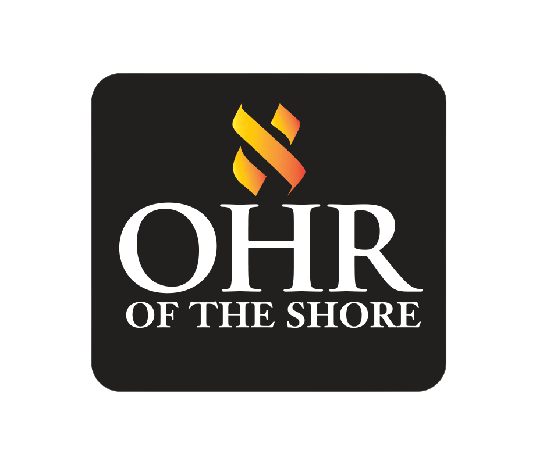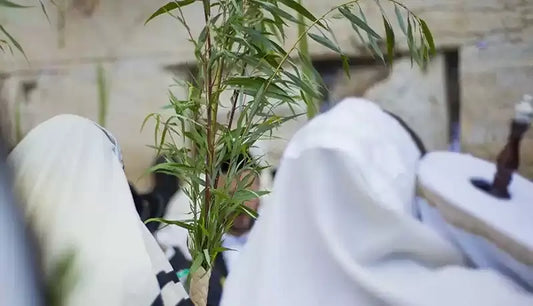Rabbi Hayim Asher Arking – Ohr Halacha
Rabbi Ezra Ghodsi – Ohr Halacha
Eruv Tavshilin
One should hold the bread and the cooked food, and recite the Beracha followed by the text of the Eruv:
בָּרוּךְ אַתָּה ה', אֱלֹקֵינוּ מֶלֶךְ הָעוֹלָם, אֲשֶׁר קִדְּשָׁנוּ בְּמִצְוֹתָיו, וְצִוָּנוּ עַל מִצְוַת עֵרוּב.
בְּדֵין עֵרוּבָא, יְהֵא שָׁרֵי לָנָא לַאֲפוֹיֵי וּלְבַשּׁוֹלֵי וּלְאַטְמוֹנֵי וּלְאַדְלוֹקֵי שְׁרַגָּא וּלְמֶעְבַּד כָּל צָרְכָנָא, מִיּוֹם טוֹב לְשַׁבָּת.
One should understand what they are saying. If the Aramaic is not understood the following should be recited instead:
“With this Eruv, it will be permitted for us to cook, bake, insulate food, light candles, and attend to all our needs - from Yom Tov to Shabbat.”
FAQs
Why do we make Eruv Tavshilin?
On Yom Tov, one is only allowed to cook for that day of Yom Tov and not for the next day, regardless of whether it will be a weekday or Holiday. When Yom Tov precedes Shabbat, the Hachamim instituted that one may only cook for Shabbat if he already “started” his cooking before Yom Tov began. We, therefore, make an Eruv Tavshilin, joining the cooking done prior to Yom Tov with the cooking being done on Yom Tov for Shabbat. This is so that one will not mistakenly assume it is permitted to cook from one day of Yom Tov to the next.
What foods should I use for the Eruv?
One should take bread, preferably the size of a k’betsah (~2 oz.), and a cooked item the size of a k’zayit (~1 oz.). Many have the custom to use a cooked egg. According to some, using a more respectable dish like fish or meat is preferred, as this brings more honor to the mitzvah. Rice, potatoes, and the like may not be used for the cooked dish.
What should I do with the food from the eruv?
The food should be labeled or placed somewhere where it will not be eaten before Shabbat, as this could potentially invalidate the Eruv.
It is commendable for the foods from the eruv to be eaten by the Shabbat meal and the bread to be used as one of the loaves for lehem mishneh. Once they were used for one mitsvah they are used for another.
If the only bread was eaten prior to Shabbat, one may still cook and bake as needed, however, if the cooked food was eaten or lost prior to Shabbat, the eruv is only still valid if there is at least a k’zayit (~1 ounce) leftover. If less than a k’zayit is leftover, or if the eruv was lost, or if one forgot to make the eruv a rabbi should be consulted.
When can I cook on Erev Shabbat?
One should cook the food early enough on Erev Shabbat that the food will at least be edible prior to Shabbat. If one forgot to do so, they can rely on the lenient opinion, and it would still be permitted for them to cook closer to Shabbat.
What if I am not planning to cook on Yom Tov for Shabbat?
If one is not planning on cooking for Shabbat, for example, they will be eating out as a guest, they should still make an Eruv. There are other melachot the Eruv covers, and one may unexpectedly need to cook. In these situations, only the text of the Eruv is recited, however, not the beracha.
What if I am a guest at someone else's house?
Married children or other guests eating all their meals at their host can be part of the host's Eruv and need not make their own. It is preferable for the host to verbalize before making the Eruv that he is including all his guests.
Can I wash dishes on Yom Tov for Shabbat?
It is questionable whether the text of the Eruv - “ולמעבד כל צרכנא – and to do all of our needs” expands the Eruv to allow one to do other melachot, which are otherwise permissible on Yom Tov, in preparation for Shabbat, or only melachot which are related to preparation of food. Nevertheless, it would still be permitted to wash dishes on Yom Tov for Shabbat. (In general, on Shabbat or Yom Tov, it is not permitted to use a regular sponge when washing dishes because it is “sehita – squeezing”).
The eruv can also be used for things which are not an actual melacha but are only a matter of “hachana – preparing” (e.g. sweeping the floors, or making the beds).



